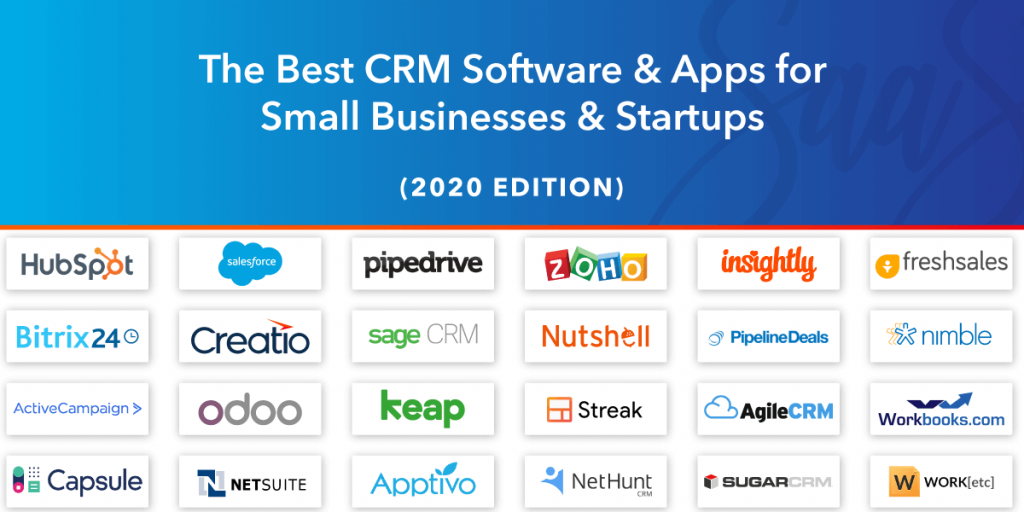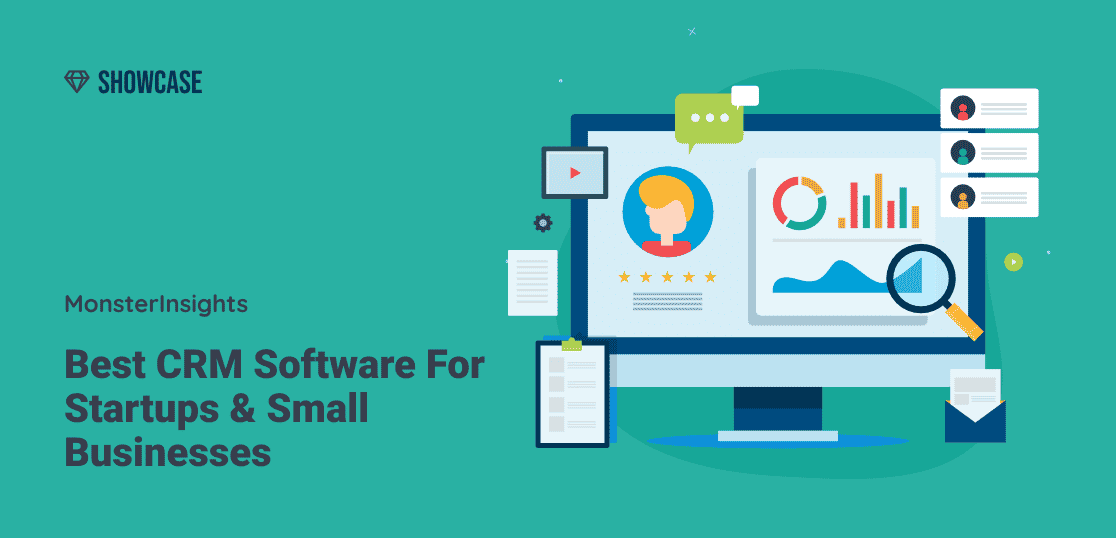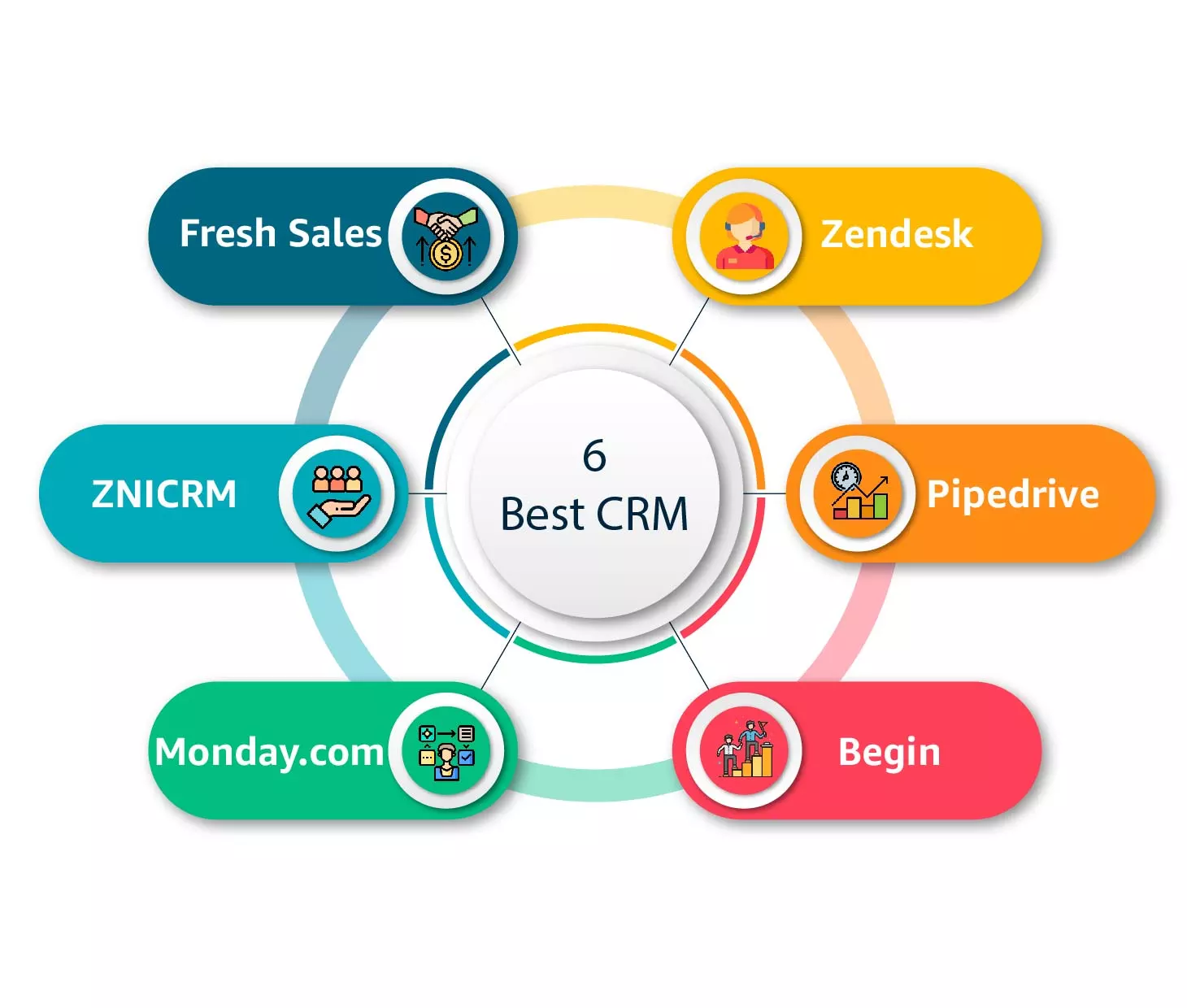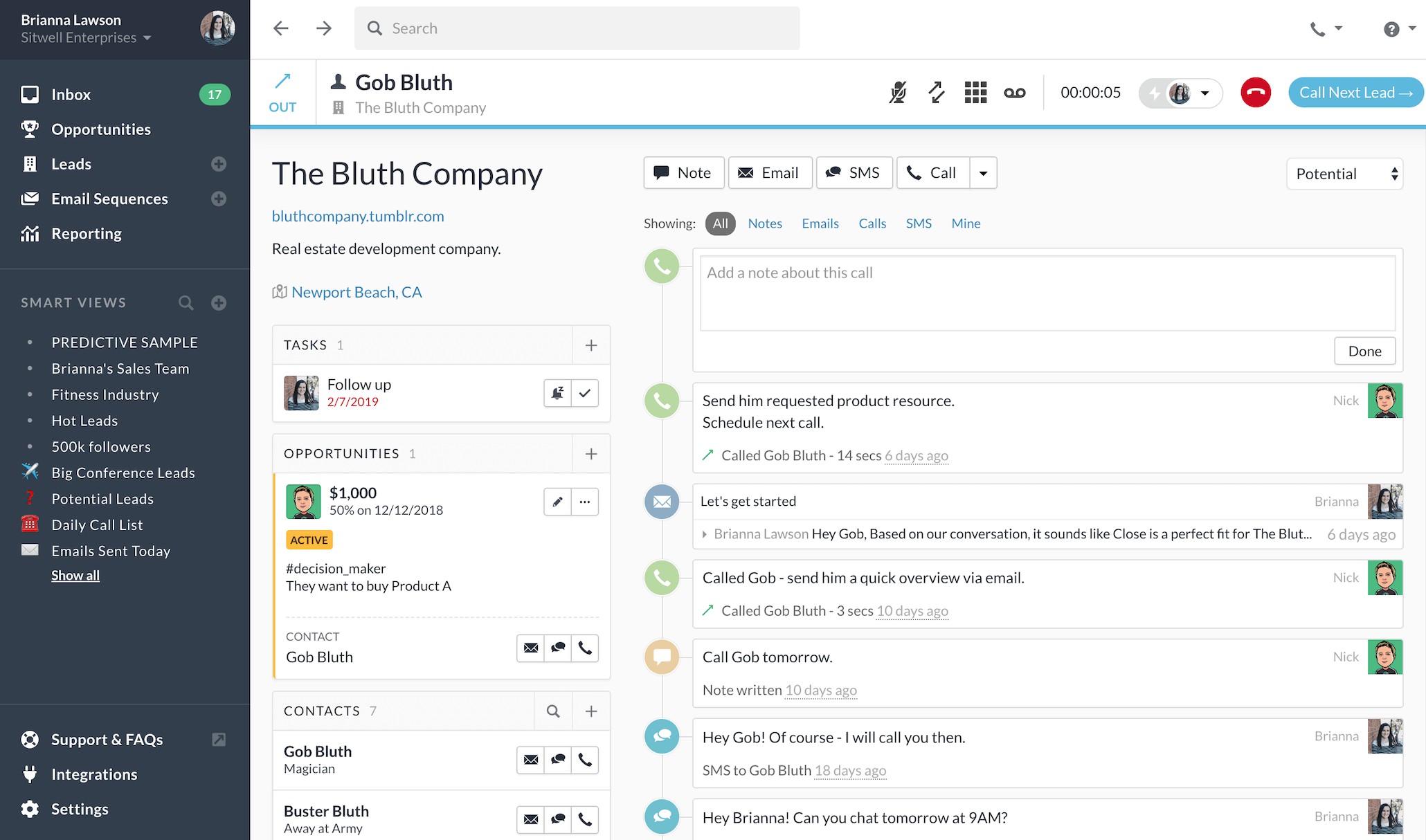Crm software startup – In the realm of startups, CRM software has emerged as an indispensable tool for managing and nurturing customer relationships. As the lifeblood of any business, customer satisfaction is paramount, and CRM software provides startups with the capabilities to streamline communication, automate tasks, and gain valuable insights into their customer base.
This comprehensive guide will delve into the intricacies of CRM software for startups, exploring its key features, implementation considerations, and the latest trends shaping this dynamic landscape.
CRM software empowers startups to effectively manage their sales pipelines, track customer interactions, and provide personalized experiences that foster loyalty and drive growth. With its ability to automate repetitive tasks and provide real-time data, CRM software streamlines operations, allowing startups to focus on building strong customer relationships and achieving their business goals.
Market Overview

The global customer relationship management (CRM) software market is projected to reach $128.31 billion by 2028, exhibiting a compound annual growth rate (CAGR) of 14.4% during the forecast period (2023-2028). The increasing adoption of cloud-based CRM solutions, growing demand for data-driven insights, and the need to enhance customer experiences are the primary factors driving market growth.
Key Industry Trends
Key industry trends shaping the CRM software market for startups include:
- Cloud-based CRM:Cloud-based CRM solutions are gaining popularity due to their scalability, cost-effectiveness, and ease of deployment.
- Artificial intelligence (AI):AI-powered CRM systems are enhancing customer segmentation, lead scoring, and personalized marketing campaigns.
- Mobile CRM:Mobile CRM applications allow sales teams to access customer data and manage interactions on the go.
- Social CRM:Social CRM tools integrate social media platforms with CRM systems, enabling businesses to monitor and engage with customers on social media.
Challenges
Startups face several challenges when implementing CRM software, including:
- Data integration:Integrating CRM software with existing systems can be complex and time-consuming.
- Cost:CRM software can be expensive, especially for startups with limited budgets.
- Training:Training employees on how to use CRM software effectively can be challenging.
- Customization:Customizing CRM software to meet specific business needs can be costly and time-consuming.
Competitive Landscape

The CRM software market for startups is highly competitive, with several major providers offering a range of solutions. These providers vary in terms of their offerings, pricing, and market share, making it important for startups to carefully evaluate their options before making a decision.
Some of the key CRM software providers targeting startups include:
- Salesforce
- HubSpot
- Zoho CRM
- Freshsales
- Pipedrive
These providers offer a range of features to help startups manage their customer relationships, including contact management, lead tracking, sales forecasting, and marketing automation. They also vary in terms of their pricing, with some offering free or low-cost plans for startups and others charging a monthly or annual subscription fee.
Market Share
Salesforce is the leading CRM software provider in the world, with a market share of over 20%. HubSpot and Zoho CRM are also major players in the market, with market shares of around 10% and 5%, respectively. Freshsales and Pipedrive are smaller players in the market, but they are growing rapidly and have a strong presence in the startup market.
Competitive Advantages and Weaknesses
Each CRM software provider has its own unique strengths and weaknesses. Salesforce is known for its powerful features and scalability, but it can be expensive for startups. HubSpot is known for its ease of use and affordability, but it may not have all the features that some startups need.
Zoho CRM is a good all-around option for startups, but it may not be as scalable as Salesforce or as easy to use as HubSpot.
Freshsales and Pipedrive are both good options for startups that are looking for a simple and affordable CRM solution. However, they may not have all the features that some startups need, such as advanced reporting or marketing automation.
Key Features for Startup CRM

Startups have unique CRM requirements that differ from those of established businesses. They need a CRM that is affordable, easy to use, and can grow with them as they scale. The following are some of the essential features that startups should look for in a CRM software:
A CRM can help startups:
- Manage customer relationships
- Track sales and marketing activities
- Automate tasks
- Generate reports
- Provide insights into customer behavior
Contact Management
A CRM should allow startups to easily manage their contacts, including customers, leads, and partners. It should provide features for:
- Storing contact information
- Tracking contact interactions
- Segmenting contacts into lists
- Sending email campaigns
- Managing social media interactions
Sales Management
A CRM should help startups track their sales pipeline and manage their sales process. It should provide features for:
- Tracking sales opportunities
- Managing sales activities
- Forecasting sales
- Generating sales reports
- Providing insights into sales performance
Marketing Automation
A CRM can help startups automate their marketing activities. It should provide features for:
- Creating and sending email campaigns
- Managing social media campaigns
- Tracking website traffic
- Generating marketing reports
- Providing insights into marketing performance
Reporting and Analytics
A CRM should provide startups with reporting and analytics tools that allow them to track their progress and measure their success. It should provide features for:
- Generating reports on sales, marketing, and customer service
- Analyzing data to identify trends and patterns
- Providing insights into customer behavior
- Helping startups make better decisions
Integration with Other Tools, Crm software startup
A CRM should integrate with other tools that startups use, such as their accounting software, email marketing platform, and website. This will allow startups to automate their workflows and improve their efficiency.
Affordability and Ease of Use
Startups are often on a tight budget, so they need a CRM that is affordable. They also need a CRM that is easy to use, so they can get up and running quickly.
The following table compares the features offered by different CRM software providers:
| Feature | CRM Software Provider A | CRM Software Provider B | CRM Software Provider C |
|---|---|---|---|
| Contact Management | Yes | Yes | Yes |
| Sales Management | Yes | Yes | No |
| Marketing Automation | Yes | No | Yes |
| Reporting and Analytics | Yes | Yes | Yes |
| Integration with Other Tools | Yes | Yes | No |
| Affordability | Yes | No | Yes |
| Ease of Use | Yes | Yes | Yes |
Implementation Considerations

Implementing CRM software in startups presents unique challenges and requires careful planning and execution. Successful implementation involves data migration, user adoption, and ongoing maintenance.
Data Migration
Migrating data from existing systems or spreadsheets to the CRM can be complex. Ensure data integrity by thoroughly mapping fields and verifying data accuracy. Use data cleansing tools to remove duplicates and format data consistently.
User Adoption
Gaining user buy-in is crucial for CRM success. Train users on the software’s functionality and benefits. Provide clear documentation and support resources. Encourage feedback and make adjustments based on user experience.
Ongoing Maintenance
Regularly update the CRM software with new features and security patches. Monitor system performance and address issues promptly. Train users on new updates to ensure ongoing proficiency.
Pricing and Value Proposition: Crm Software Startup
Pricing models for CRM software vary depending on the provider, features offered, and the number of users. Common models include:
- Per-user pricing: A fixed monthly or annual fee per user.
- Tiered pricing: Different pricing tiers with varying features and user limits.
- Usage-based pricing: Fees based on the number of contacts, transactions, or other usage metrics.
- Custom pricing: Tailored to specific business needs and requirements.
Evaluating ROI
Startups can evaluate the ROI of CRM software by considering the following:
- Increased sales productivity: Streamlined processes and automation can lead to increased sales conversions and revenue.
- Improved customer satisfaction: Centralized customer data and personalized communication can enhance customer experiences.
- Reduced operational costs: Automation of tasks and improved data management can reduce manual labor and expenses.
- Data-driven decision-making: Access to real-time data and analytics provides insights for informed business decisions.
Negotiating and Securing Best Pricing
To negotiate and secure the best pricing, startups can:
- Compare pricing from multiple providers and consider bundled packages.
- Negotiate based on the number of users, features required, and contract duration.
- Seek discounts for long-term commitments or upfront payments.
- Consider cloud-based CRM solutions with flexible pricing and scalability.
Integration and Customization

For startups, integrating CRM software with other essential tools is crucial for streamlining operations and maximizing efficiency. Connecting CRM with accounting software, for instance, allows for automated data transfer between systems, eliminating manual entry errors and saving valuable time. Additionally, integrating with marketing automation platforms enables seamless campaign management and lead tracking, fostering a cohesive marketing and sales process.
Customization is another key aspect of CRM software for startups. The ability to tailor the software to specific needs ensures alignment with unique business processes. From customizing data fields to creating custom dashboards and reports, CRM software empowers startups to mold the system to their advantage.
Recommended CRM Software Integrations for Startups
- Accounting:QuickBooks, Xero
- Marketing Automation:Mailchimp, HubSpot
- Project Management:Trello, Asana
- Collaboration:Slack, Microsoft Teams
- Customer Support:Zendesk, Salesforce Service Cloud
Emerging Trends
The CRM software industry is constantly evolving, with new trends emerging all the time. These trends are driven by the changing needs of businesses, the advancements in technology, and the increasing adoption of cloud-based solutions. Startups, in particular, can benefit from these trends as they can help them to manage their customer relationships more effectively and efficiently.
One of the most important emerging trends in CRM software is the increasing use of artificial intelligence (AI). AI can be used to automate a variety of tasks, such as lead scoring, customer segmentation, and predictive analytics. This can free up startups to focus on more strategic initiatives, such as building relationships with customers and growing their business.
Another emerging trend is the growing popularity of mobile CRM solutions. Mobile CRM solutions allow startups to manage their customer relationships on the go. This is important for startups that have a remote workforce or that need to be able to access their CRM data while they are out of the office.
Finally, there is a growing trend towards the adoption of cloud-based CRM solutions. Cloud-based CRM solutions are more affordable and easier to use than on-premise solutions. They also offer a number of benefits, such as increased flexibility, scalability, and security.
Innovative CRM Solutions for Startups
There are a number of innovative CRM solutions that are tailored to the needs of startups. These solutions are typically cloud-based and offer a variety of features that can help startups to manage their customer relationships more effectively. Some of the most popular CRM solutions for startups include:
- Salesforce Essentials
- HubSpot CRM
- Zoho CRM
- Freshsales
- Pipedrive
These CRM solutions offer a variety of features that can help startups to manage their customer relationships more effectively, such as:
- Contact management
- Lead management
- Sales tracking
- Customer support
- Marketing automation
Wrap-Up
In conclusion, CRM software has become an essential tool for startups looking to optimize their customer relationships and drive business success. By carefully evaluating their needs, startups can select the right CRM software that aligns with their specific requirements and budget.
With its powerful features and customization options, CRM software empowers startups to nurture customer relationships, automate processes, and gain valuable insights that will drive growth and profitability.
Frequently Asked Questions
What are the key benefits of CRM software for startups?
CRM software provides startups with numerous benefits, including improved customer communication, automated tasks, enhanced sales pipeline management, and valuable customer insights.
How do I choose the right CRM software for my startup?
Consider your specific business needs, budget, and the features offered by different CRM software providers. Research and compare various options to find the best fit for your startup.
How do I implement CRM software effectively in my startup?
Successful CRM implementation involves data migration, user adoption, and ongoing maintenance. Develop a clear implementation plan, train your team, and monitor progress to ensure a smooth transition.
